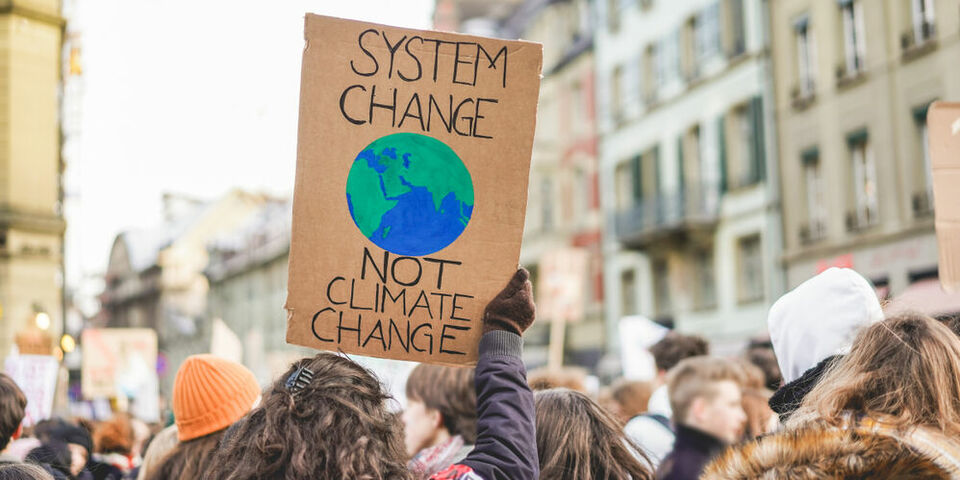Heleen de Coninck: “System change, not climate change"
Can we innovate our way out of the climate crisis? No, said TU/e professor Heleen de Coninck during her inaugural speech this Friday. Innovation is just one of several aspects of the system change that is required to mitigate climate change. “We need to change if we want to limit (climate)change, and we need to change in order to deal with (the consequences of climate) change.”
Long, severe winters and freezing temperatures are a thing of the past, Heleen de Coninck says. She was appointed full professor of Socio-Technical Innovation and Climate Change at the department of IE&IS in 2020. In addition, she’s gained recognition as one of the researchers behind the IPCC climate reports.
Climate change is happening right now, and the only option we have left is to do everything in our power to keep global temperature rise below 1.5 degrees Celsius – or at the very least make sure that global temperature won’t increase to a catastrophic two degrees, as the IPCC has warned us for. At the same time, we will need to deal with the consequences caused by the current changes, which, for example, will lead to large numbers of climate refugees. From now on, mitigation and adaptation must go hand in hand.
Forces
The title of her inaugural speech – System change, not climate change – came from a protest sign she saw at a climate rally. The necessity of such a systemic change is also what the authors of a report by the national climate research taskforce, which appeared today, call for.
That taskforce, chaired by De Coninck, is an initiative by KNAW and NWO.
De Coninck talks about system transitions in four areas: energy, land and ecosystems, cities and infrastructure, and industry. During her inaugural speech, she explains how several forces in society interact and prevent change from occurring. A few random examples: the vulnerabilities in our power network, the erratic dynamics of the financial sector, the persistent status of car ownership, and the conservative tendencies in industry.
Just policy
The idea that we can ‘innovate our way out of the climate crisis’ is far too simple, considering the comprehensive nature of the problem. “I understand that we need these kinds of technologies (such as for CO2 storage, ed.). But I also see that it’s a risk to put too much faith in these technologies.” Instead, De Coninck calls for an approach on multiple levels. Apart from technological innovation, the solution to the problem of climate change will require behavioral change, governance, financing and policy instruments.
She also stresses the importance of a just climate policy. There will always be groups that have something to lose due to system changes, such as jobs or a habitable living environment. The dynamics operate in such a way, that these are often the groups that have suffered losses before.
This also applies to nations. It’s a bitter truth, for example, that the poorest countries that contribute the least to climate change, often suffer the most from extreme weather conditions. That’s why it’s important to distribute the environmental costs equally across countries, not just to create support for change, but also from a moral point of view.
Acceleration
System changes are complex are require time. And time is something we don’t really have anymore: De Coninck says that the Netherlands needs to reduce carbon emissions to net zero by 2040. But she believes, based on her research, that we still have a chance: if we manage to align all parties, we might accelerate system transition. That won’t be an easy task, but, De Coninck says in conclusion, she “considers it a social duty to remain hopeful.”



Discussion